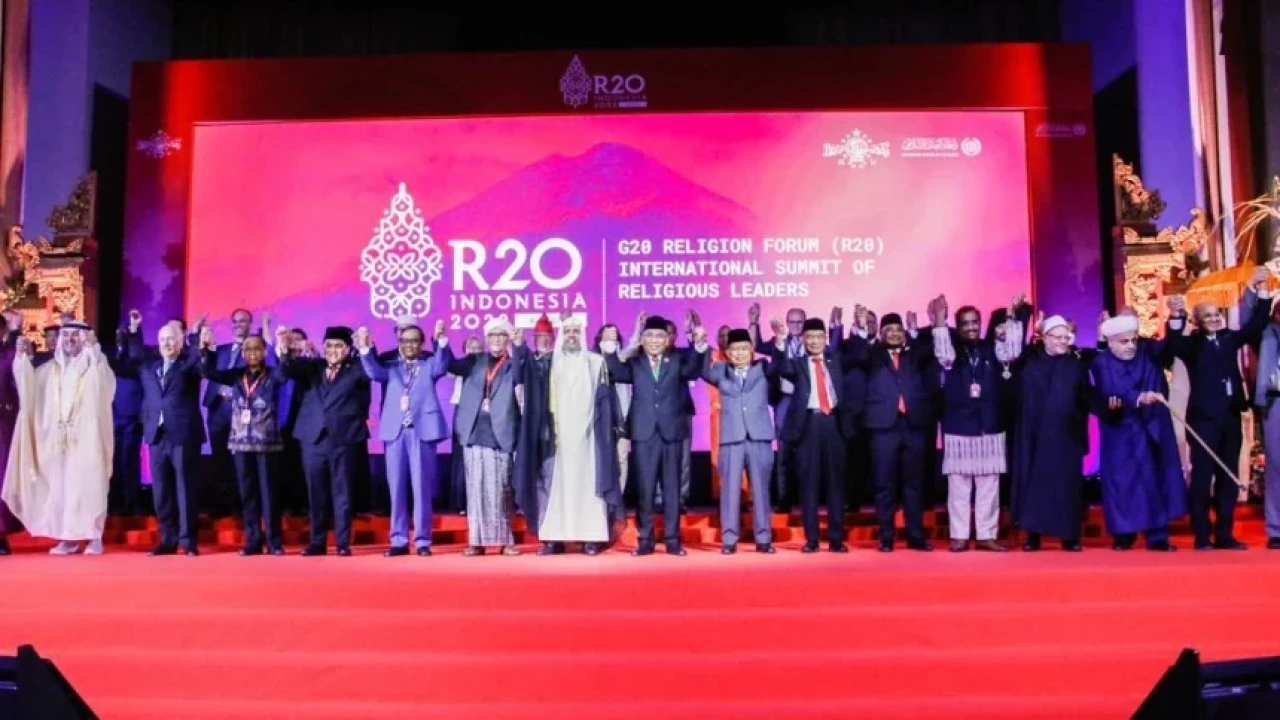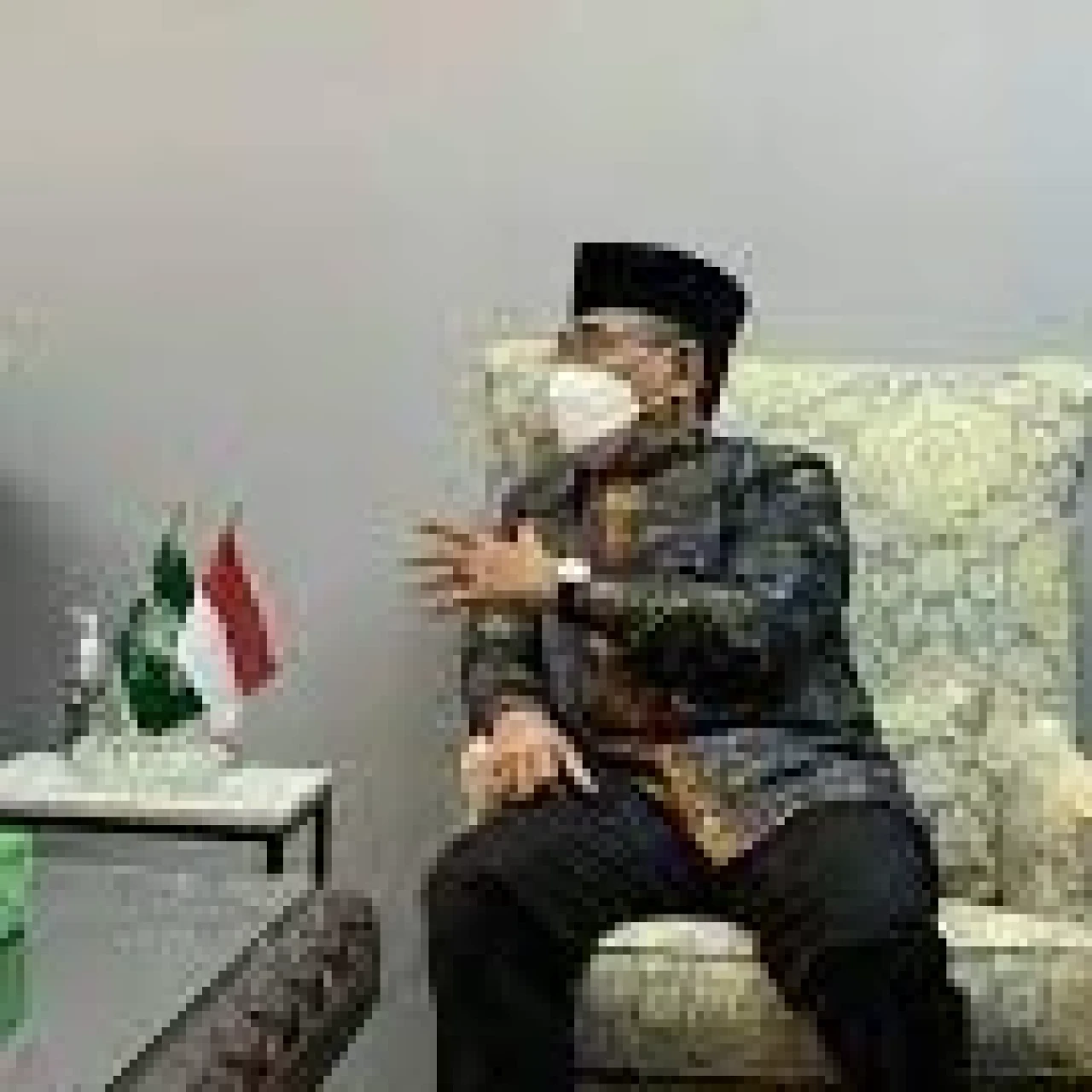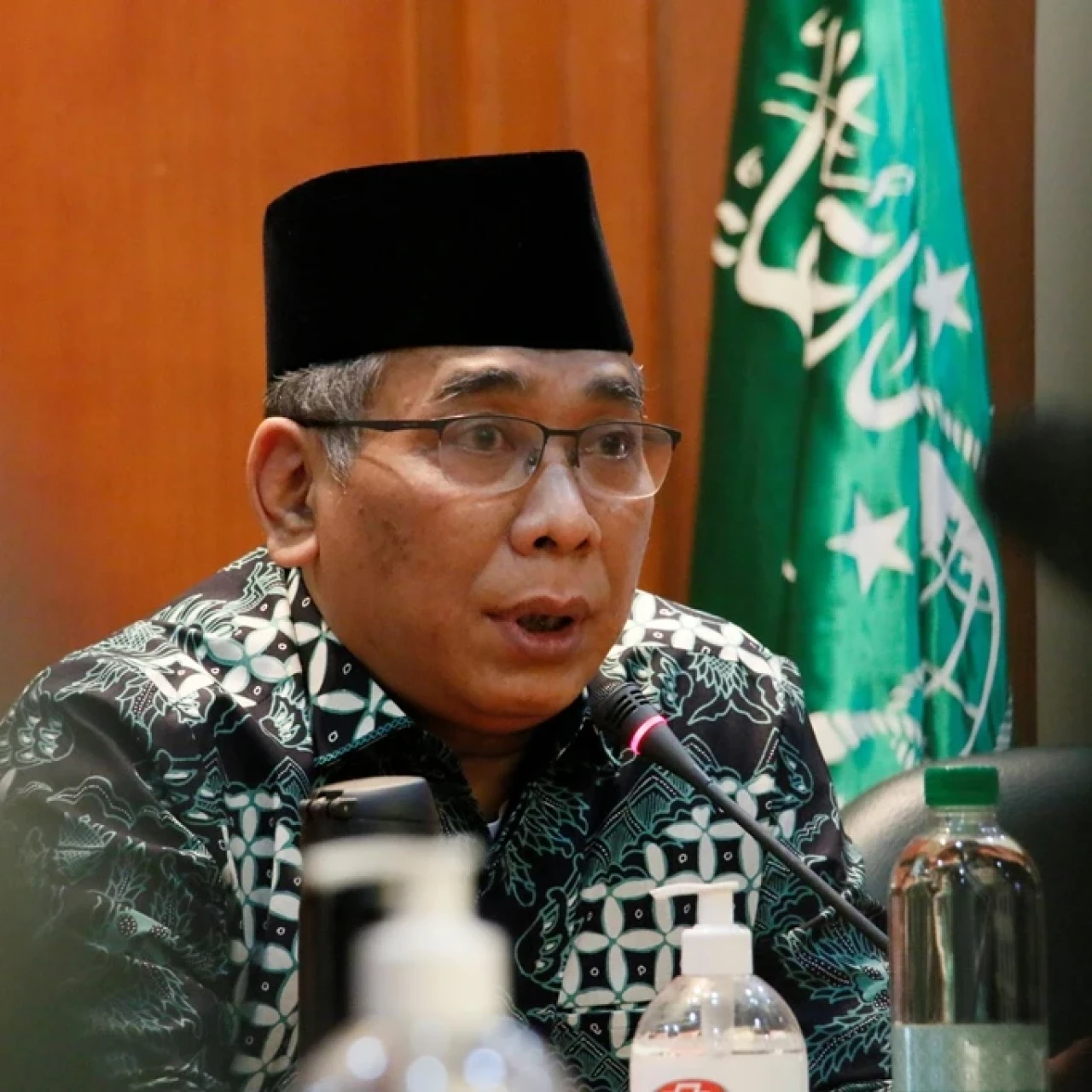R20 and Nahdlatul Ulama’s Contributions to World Civilization
Senin, 7 Agustus 2023 | 14:48 WIB

Nahdlatul Ulama’s campaign for reform of Muslim law could potentially affect the future of the world’s second largest faith regarding human rights.
It’s a very special honor to have been asked to offer some introductory remarks on this happy occasion. As you may imagine, it took much effort and cooperation on the part of many people to produce the book we launch and celebrate today. So it seems right and proper to recognize some of the protagonists in that process. In particular the inspiring leadership of Pak Yahya), and the distinguished representatives and leaders of Nahdlatul Ulama.
Special thanks are also due to the leadership and faculty of Gadjah Mada University, Indonesia’s largest and most distinguished institution of higher learning, for publishing the R20 volume-and for so graciously hosting us this morning. I would especially like to acknowledge the Rector, Prof. Dr. Ova Emilia, and Prof. Mohtar Mas’oed, Professor Emeritus of International Relations and former Dean of the Faculty of Social & Political Science, and of course the three editors of the book we are celebrating and launching today:
— Dr. Muhammed Najib Azca, Associate Professor in Sociology and Senior Researcher at the Center for Security & Peace Studies here at Gadjah Mada University;
— Dr. Timothy Shah, Director of Strategic Initiatives of the Center for Shared Civilizational Values and Distinguished Research Scholar in Politics at the University of Dallas; and
— Mr. C. Holland Taylor, Special Advisor for International Affairs to the General Chairman of Nahdlatul Ulama Central Board, and Deputy Chairman & CEO of the Center for Shared Civilizational Values.
And thanks to all of you for being here to celebrate the publication of the proceedings of the first R20 --which brought together over 400 Hindu, Buddhist, Shinto, Jewish, Christian, and Muslim leaders to discuss a crucially important question: How can religion function as a source of global solutions, rather than problems, in the twenty-first century?
For those of us who attended that first Religion Summit, it was clear from the outset that we were witnessing an event that just might turn out to have been a historic milestone.
The R20 would have been memorable if it had done nothing more than represent a concrete acknowledgment by the G20 of the importance of religion in relation to its goals of economic stability and development. But the R20 did much more than that. It brought wider attention to the growing global influence of a tolerant, reformist brand of Islam that needs to be better known in the world. And it gave a giant boost to an interfaith movement that could have a decisive effect on the chances for world stability and prosperity.
Today, thanks to Muhammad Najib Azca, Timothy Shah and Holland Taylor, we have a comprehensive record of that event. This volume contains in its four sections: speeches from the wide range of religious, political, and scholarly figures who participated in the R20; it contains the official documents of the R20; it contains supplementary foundational texts that illuminate the summit’s major themes; and it contains excerpts from commentaries on the meeting’s significance. This is a rich collection of material. And it will serve as an important reference point as the R20 moves to India this year, and then on to Brazil and South Africa.
I’d like to begin my remarks today with some thoughts about why the G20’s decision to make the R20 an annual event is so significant. I’ll then offer a reflection on how fortuitous it was that the first R20 was held in Indonesia (“the “heartland of moderate Islam”). And I’ll conclude with some observations about the implications of the R20 for the future of interfaith conversations and the movement for shared civilizational principles.
The G20 Gets Religion
So, first: the G20’s decision to emphasize the role of religion more explicitly in geopolitical deliberations was a refreshing change from the tendency of international policy makers to regard religion as irrelevant, or to treat it mainly as a source of division and conflict.
Even so, it should be said that the G20’s decision was long overdue. After all, religion is one of the main forces that motivate and mobilize people; religion’s influence on politics—for better for worse—is growing on every continent; and religious adherents compose 84 percent of the world’s population. Given all those facts, it’s hard to see how the ambitious aims of the G20 could ever be accomplished without paying close attention to religion!
I am sure that a major factor preparing the way for the G20’s decision was the decision at a meeting of the G7 in 1999 to establish the G20. By bringing more non-western populations into the sphere of global governance, the G7 acknowledged the need for a deeper understanding of what shapes global sentiments, and a better sense of what is needed to address global challenges. After that, all that was needed was for the Indonesian presidency to make the R20 a reality, and to make the first R20 such a resounding success.
If last November’s summit had done nothing more than focus the attention of the G20 on the ways in which the world’s religions can contribute to the maintenance of healthy societies, that would have made it a memorable event. But the R20 broke new ground in a number of other ways.
The Indonesian Model
Among the most important results of the R20 was to heighten awareness of developments in Islam that are too little known in other parts of the world. James Dorsey has been practically alone in spreading the word. But now a number of others are beginning to take note. A month after the conference ended, the respected Canadian National Post journalist Raymond de Souza described it as “immensely significant, the biggest recent news in the Islamic world.” De Souza wrote that “by bringing the Nahdlatul Ulama tradition to international attention, the R20 offered new resources for the civilization-shaping project of Islamic reform”. De Souza was particularly struck by the fact that “an alternative Islamic experience was offered from Asia to Arabia.”
Then, two months later, a writer for The Hill (a political journal that is widely read by Washington decision-makers) noted the significance of the fact that the R20 was organized by the world’s largest Muslim political organization, that it was held in the world’s largest Muslim-majority nation, and that Indonesia happens to be the most successful democracy in the Islamic world. That led him to tell readers of The Hill:
A remarkable transformation has been taking place in the Muslim world: a years-long shift towards pluralism and tolerance contradicting common assumptions about Islam. At the G20’s ground-breaking Religion Forum in Bali, that transformation took center stage. Not only was that an epochal moment in modern Islam, but this moment also helped create the world’s most important interfaith conversations.
I would only add to those evaluations the symbolic importance of the fact that the R20 was held in a Hindu region of a Muslim majority nation. That fact alone speaks volumes about Indonesia’s distinctive model of religious pluralism and about the progress that Indonesia has made toward an ethos of religious freedom and social harmony.
Of potentially even broader significance is the fact that the Indonesian commitment to unity within diversity derives from an ancient Indo-Islamic tradition that extends far beyond Indonesia. As Conference Chairman Pak Yahya explained in a recent speech, the Ashoka tradition is part of a shared civilizational legacy that belongs to the many religiously and ethnically diverse nations of the Indo-Pacific—a legacy that respects differences and fosters social harmony.
Facing hard questions
Yet another ground-breaking aspect of the R20 was the welcoming atmosphere that prompted the writer for The Hill to credit the meeting with “helping to create the world’s most important interfaith conversations.”
Those of you who were there last November will remember what was so special about those conversations. Speakers from a range of faith traditions avoided the usual platitudes of interfaith dialogue. Instead, they grappled head-on with such difficult topics as dealing with historical grievances, reconciling shared principles with cultural diversity, and the sensitive matter of discerning problematic elements within their own traditions that may have contributed to hostility and violence.
As many of you will also recall, they frankly acknowledged that religion has all too often been a source of, or a pretext for, conflict in today’s world. Many acknowledged the need for religious leaders to educate their followers to reject ideologies that manipulate religion for political purposes, and to motivate their followers to live their faith in ways that concretely demonstrate how religion can contribute to the general well-being.
Pak Yahya had encouraged the participants to be candid in discussing the “values our respective traditions need to relinquish to ensure that religion functions as a genuine and dynamic source of solutions”. And most of the participants responded willingly to that invitation. After the conference, anthropologist Jonathan Benthall wrote that the discussions had broken new ground in the effort “to confront openly and actively the ‘hard texts’ of each religion, rather than trying to explain them away.” He added that “It would truly be a game-changer if the R20 were to stimulate the world’s most important religious authorities to reform their traditions from within, and become forces for peace, carrying along with them the huge number of adherents that each of them could mobilize.”
That same aspect of the R20 also caught the attention of Pulitzer-Prize-winning journalist Richard Ostling. He wrote that Nahdlatul Ulama’s campaign for re-examination and reform of parts of Muslim law “could potentially affect the future of the world’s second largest faith regarding democracy, human rights, education, the role of women, treatment of other religions, warfare, extremism, terrorism and crime and punishment.”
As a Roman Catholic old enough to remember my own church’s efforts toward reform and renewal in Vatican II, I can only applaud the willingness on the part so many at the R20 to undertake such a process. I can testify that the effort (like any process of excavation) may lead to some uncomfortable, even painful, discoveries. But it is also likely to lead to a fresh appreciation of deep truths that have been obscured over time. I can also attest that the process of self-examination is not a one-time thing. It is an ongoing process that helps to keep one true to what is highest and best in one’s faith.
The quest for shared values
Finally, I would like to call attention to the way in which the materials collected in this book have given a boost to the idea that there are some principles of decent human conduct that are universally valid. That there are some things so good that virtually no one will openly oppose them, and some things so bad that virtually no one will openly support them. That is the idea that inspired the Universal Declaration of Human Rights whose 75th anniversary we celebrate this year.
As I’m sure you know, that idea has taken quite a battering in recent years. Human rights today are widely misunderstood, often misinterpreted, and routinely ignored by more than a few nations. And the international consensus that supported the UDHR in 1948 is faltering.
But the contributions to this volume provide encouraging evidence that belief in the existence of universally valid principles is still strong. And that most religious traditions contain rich resources for overcoming parochialism and fostering the pluralist goal of promoting unity while respecting diversity.
The R20 ended with an inspiring communique from which I would like to quote: It “calls upon religious and political leaders and people of goodwill of every faith and nation to join in building a global alliance founded upon shared civilizational values [in order to] prevent the political weaponization of identity; curtail the spread of communal hatred; [and] promote solidarity and respect among the diverse peoples, cultures, and nations of the world.”
That is a call that deserves to be heard and amplified in every corner of the earth. And, God willing, Inshallah, the book launched here today will help to make it so.
But for that to happen, there is still much hard work to be done. Muhammad Najib Azca, Timothy Shah and Holland Taylor have already accomplished a heroic task. They produced a conference volume within less than a year of the R20 conference—something that hardly ever happens in the academic world. Now it is up to all of us to ensure that the hopeful news they bring is heard far and wide. One way to do that is to see that the book is reviewed in as many places as possible. Another way is to get the book into the hands of people who need to be aware of its important messages.
Another way is simply by word of mouth. Long ago, when I first started teaching, I often heard it said that something has to be repeated at least seven times before it enters long-term memory. I don’t know whether or not that’s true, but I do know that it helps to get an idea across if people hear it often, and if they hear it from many different sources, and if it is expressed in different ways. So let us thank Muhammed, Tim, and Holland for their great work—and let us resolve to do all that we can to make it heard!
Mary Ann Glendon, Professor of Law at Harvard Law School and former United States of America Ambassador to the Holy See









